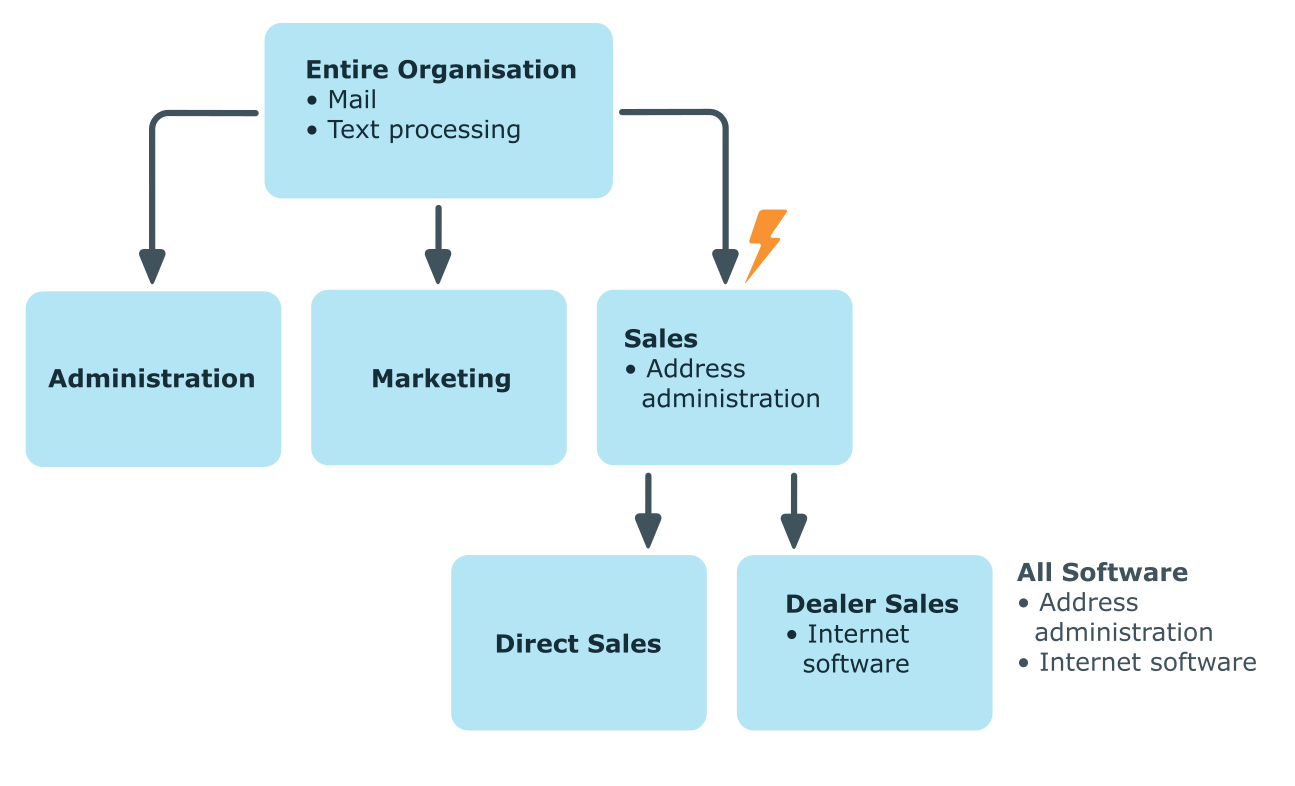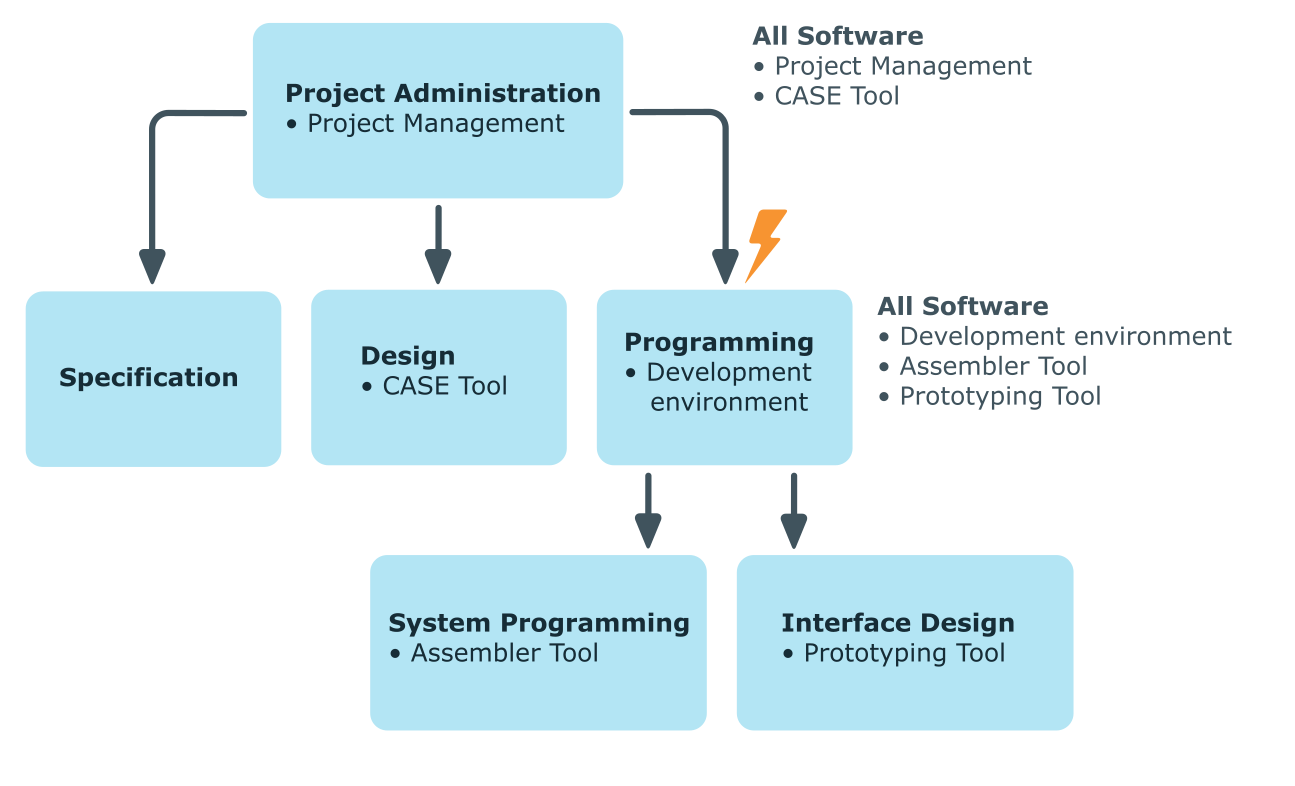There are particular cases where you may not want to have inheritance over several hierarchical levels. That is why it is possible to discontinue inheritance within a hierarchy. The point at which the inheritance should be discontinued within a hierarchy is specified by the Block inheritance option. The effects of this depend on the chosen direction of inheritance.
-
Roles marked with the Block inheritance option do not inherit any assignments from parent levels in top-down inheritance. It can, however, pass on its own directly assigned company resources to lower level structures.
-
In bottom-up inheritance, the role labeled with the “Block inheritance” option inherits all assignments from lower levels in the hierarchy. However, it does not pass any assignments further up the hierarchy.
The Block inheritance option does not have any effect on the calculation of the manager responsible.
Example: Discontinuing inheritance top-down
If the Block inheritance option is set for the "Sales" department in the top-down example, it results in sales employees only being assigned the "Address management" software and employees in the "Dealer sales" department inherit the "Address management" and "Internet" software. Software applications in the "Entire organization" department are however, assigned to employees in the "Sales" and "Dealer sales" departments.
Figure 3: Discontinuing inheritance top-down

Example: Discontinuing inheritance bottom-up
An employee from the "Programming" project group receives software applications from the project group as well as those from the projects groups below. In this case, the development environment, assembler tool and the prototyping tool. If the "Programming" project group has labeled with the Block inheritance option, it no longer passes down inheritance. As a result, only the CASE tool is assigned to employees in the "Project lead" project group along with the software application project management. Software applications from the "Programming", "System programming", and "Interface design" projects groups are not distributed to the project lead.
Figure 4: Discontinuing inheritance bottom-up



